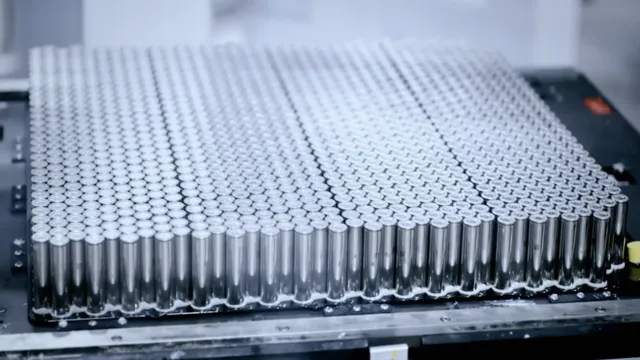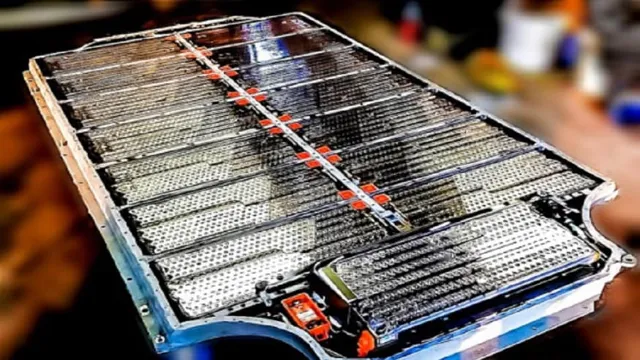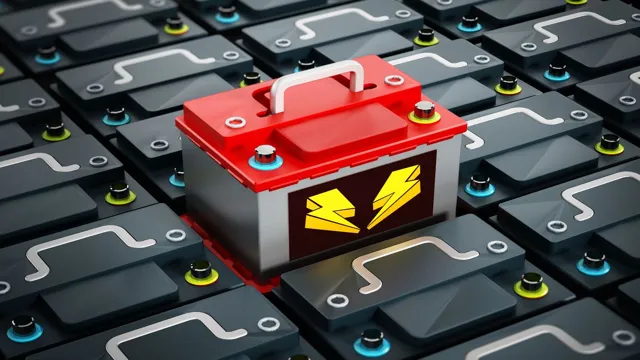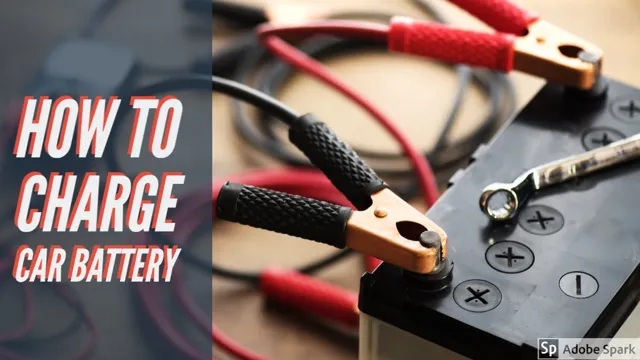The Revolutionary Power Source: Tesla’s Electric Car Batteries Explained
Electric cars are quickly becoming the norm in today’s fast-paced society, and Tesla has played a massive role in their skyrocketing popularity. But what truly sets Tesla apart from the competition is their innovative approach to car batteries. These game-changing batteries are revolutionizing the automotive industry, paving the way for a new era of electric vehicles.
In this blog post, we’ll take a deep dive into Tesla’s electric car batteries, exploring how they work, what makes them so unique, and how they are transforming the way we think about driving. So buckle up, and let’s dive into the world of Tesla’s game-changing innovation.
What Sets Tesla’s Batteries Apart?
When it comes to electric car batteries, there are plenty of options on the market, but Tesla’s batteries are quite unique. One key factor that sets Tesla’s batteries apart is their capacity for rapid charging. Tesla’s Supercharger network, which spans across the world, can charge a Tesla battery to 80% in just 30 minutes.
This means that long-distance driving is made more accessible and convenient, as drivers can quickly power up their cars at Supercharger stations. Another way Tesla’s batteries stand out is through their longevity. Tesla batteries can last for hundreds of thousands of miles, thanks to their sophisticated management system that ensures optimal charging and discharging.
These batteries also have a higher energy density, which means they can store more energy in a smaller space. All of these factors combine to make Tesla’s batteries some of the most advanced and reliable on the market, and it’s no wonder why Tesla has become an industry leader in electric vehicles.
High Energy Density
When it comes to high energy density batteries, Tesla has set the bar pretty high. So, what sets their batteries apart? Well, for starters, Tesla’s batteries use a combination of high-energy-density materials for the cathode and anode, creating a more efficient battery. They also have a unique cooling system that helps maintain the temperature of the battery, which vastly improves their longevity.
By making these advancements, Tesla has been able to achieve a higher energy density per unit weight than many other battery manufacturers. This, in turn, means that their batteries can store more energy and can be used in a wide range of applications, from powering electric vehicles to storing energy from solar panels. So although there are many factors that set Tesla’s batteries apart, it is their high energy density that really makes them stand out from the rest.

Long Lifespan
Tesla’s batteries are known for their long lifespan, which sets them apart from other batteries in the market. These batteries are designed to last for a long time, with Tesla offering a warranty of eight years or 120,000 miles, whichever comes first. The secret behind the long lifespan of Tesla’s batteries lies in the materials used in their construction.
Tesla uses high-quality lithium-ion batteries that are optimized for performance and longevity. The company also has a team of experts who work to constantly improve the battery technology and make them more efficient. Additionally, Tesla’s batteries are designed to operate at a lower temperature range, which extends the lifespan of the battery.
This means that the battery is less likely to suffer from degradation, and it can retain its charge for longer periods. Overall, the exceptional quality of Tesla’s batteries makes it a leader in the electric vehicle industry, providing customers with a reliable and efficient energy source.
Fast Charging
When it comes to fast charging, Tesla’s batteries truly stand out from the crowd. The secret behind their success lies in the company’s cutting-edge technology and engineering prowess. Tesla’s batteries are designed to handle higher charging rates than any other battery on the market, allowing them to recharge much faster than rival EV models.
This is thanks to a combination of factors, including the use of high-quality materials and a sophisticated thermal management system that helps keep the battery cool even under heavy use. Additionally, Tesla’s battery cells are arranged in a unique way, allowing for more efficient transfer of energy within the battery pack. When it comes down to it, Tesla’s fast-charging technology is a true testament to the company’s commitment to innovation and sustainability.
The Cost of Tesla’s Batteries
Electric car batteries are a crucial component for the smooth functioning of electric vehicles, and Tesla is a leader in this market. However, high battery costs have been a concern for the industry for several years. Tesla has recently made significant strides in reducing its battery costs, with the aim of bringing electric cars to the masses.
The new 4680 battery cell, which the company announced in 2020, is an important milestone in this effort. It is a larger cell that is expected to reduce battery costs by improving energy density and efficiency. Additionally, Tesla has announced that it will be producing these cells in-house, which will further reduce costs.
As a result, the cost of Tesla’s batteries is expected to decrease significantly over the next few years, making electric cars more affordable and accessible to the general public.
Comparing to Other EV Batteries
The cost of Tesla’s batteries is often compared to other EV batteries on the market, such as those used in cars produced by Nissan and Chevrolet. While Tesla’s batteries are priced higher, they also offer significant advantages in terms of range and durability. The Model 3, for example, has a range of up to 322 miles on a single charge, far surpassing competitors in the same price range.
What’s more, Tesla offers a warranty of 8 years or 150,000 miles on their batteries, providing peace of mind for owners. Additionally, Tesla is constantly innovating and refining their battery technology, which may result in further price reductions down the line. While other manufacturers may have lower up-front costs, the long-term savings and benefits of Tesla’s batteries make them a compelling choice for many EV buyers.
The Impact on the EV Market
The cost of Tesla’s batteries is a significant factor impacting the EV market. Tesla’s strategy to create cheaper and more efficient batteries has drastically changed the EV market in recent years. The company’s investments in research and development have enabled them to reduce costs and extend battery range.
This cost reduction has allowed Tesla to offer more affordable electric vehicles, making EVs more accessible to consumers. Additionally, Tesla’s innovations in battery technology have caused a ripple effect in the EV market, with other automakers introducing more affordable EV models with longer-range capabilities. With Tesla’s continued investment in battery technology, the EV market is sure to continue growing, and affordability and range will become less of an issue for consumers.
As more consumers switch to electric cars, it’s clear that the developments in battery technology will continue to shape the EV market’s future.
Future of Electric Car Batteries
With the growing popularity of electric cars, the future of electric car batteries is a topic of great discussion. Tesla, a leading electric car manufacturer, has made great strides in developing high-performance electric car batteries. While traditional lithium-ion batteries are currently the norm, Tesla has been experimenting with different types of batteries such as solid-state and metal-air batteries.
Solid-state batteries offer higher energy density and longer life, while metal-air batteries have the potential to significantly increase the driving range of electric cars. The future also holds promise for battery recycling, as it can help reduce the environmental impact of battery production and disposal. While challenges remain, such as ensuring affordable and accessible battery options, the progress being made in battery technology is promising for the future of electric cars.
Advancements in Battery Technology
Advancements in battery technology have allowed for electric vehicles to become increasingly popular due to their environmental benefits and low operating costs. However, the lifespan and charging time of batteries have been a significant concern for potential electric car buyers. The future of electric car batteries looks bright as new advancements are being made in battery chemistry, including solid-state batteries and lithium-sulfur batteries.
These new technologies promise to improve the driving range of electric cars by two to three times, while also reducing charging times significantly. Additionally, improvements in battery recycling technology will make electric cars even more eco-friendly. With these advancements, electric cars will become an even more viable option for environmentally conscious drivers who want to reduce their carbon footprint.
Tesla’s Plans for Battery Production
As the world continues to shift towards sustainability, electric cars are becoming increasingly popular. Tesla, the leader in electric car manufacturing, has announced plans to ramp up its battery production. The company aims to produce up to 3 terawatt-hours of batteries by 2030, which is more than the current global production.
The move will not only make electric cars more accessible to the masses, but it will also help reduce carbon emissions and contribute to a greener world. With this ambitious goal, Tesla plans to increase the efficiency of its batteries, reduce their cost, and ensure they have a longer lifespan. By doing so, the company hopes to create a new era of electric cars that are more reliable, affordable, and sustainable.
The future of electric car batteries is bright, and Tesla is leading the way towards a more sustainable future.
Conclusion: Tesla Leads the Way in Electric Car Battery Innovation
So there you have it, folks! Thanks to Tesla’s innovative electric car batteries, we can finally travel long distances in a more sustainable and energy-efficient way. No longer do we have to rely on the old gasoline-guzzling vehicles of the past. With Tesla leading the charge, we can look forward to a future where both transportation and the environment can coexist in harmony.
So, let’s all give a round of applause to Elon Musk and his team for powering the way towards a cleaner and brighter tomorrow!”
FAQs
What type of battery is used in Tesla electric cars?
Tesla vehicles are powered by lithium-ion batteries.
How long do Tesla electric car batteries typically last?
Tesla car batteries have a warranty for up to 8 years or 120,000 miles. However, the lifespan of the battery can vary based on usage and environmental factors.
Can Tesla car batteries be recycled?
Yes, Tesla batteries can be recycled. The company has a recycling program that aims to recover valuable materials from used batteries.
How does cold weather impact Tesla electric car batteries?
Like all batteries, cold weather can reduce the efficiency of a Tesla battery. However, Tesla vehicles have a battery temperature management system that helps mitigate the impact of cold weather.




